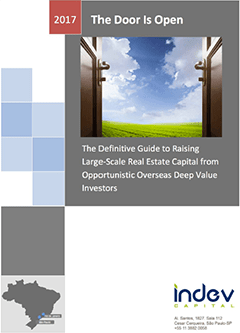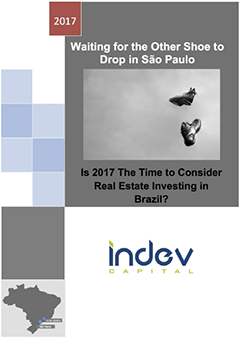
I arrived in Brazil in November 2009, the same week of the November 2009 edition of The Economist magazine issue with “Brazil Takes Off” on the cover. It was a very positive article and as a newcomer I was impressed by how much this article boosted the population’s confidence. The article stated, “Unlike China, it (Brazil) is a democracy. Unlike India, it has no insurgents, no ethnic and religious conflicts nor hostile neighbors. Unlike Russia, it exports more than oil and arms, and treats foreign investors with respect.” These points all remain true. The question remains, were the fundamentals of the Brazilian economy at that time really that positive?
Flash forward to 2015, and The Economist issue last week had an article about Brazil titled “The Crash of a Titan.” The article states, “With inflation above 7%, shoppers’ purchasing power is being eroded.” And “Brazil is facing an acute water shortage; since three-quarters of its electricity comes from hydroelectric dams, this is sapping it of energy. To avoid blackouts the government plans to deter use by raising prices: rates will increase by up to 30% this year. With the Real losing 10% of its value against the dollar in the past month alone, rising import prices will bring more inflation.” Different story in indeed.
I was with one of our large well capitalized developer clients, we have been fortunate to only work with very well capitalized clients, and we were having a conversation about the current market environment. This company has been in business for 40 years and is one of the most successful private real estate companies in Sao Paulo (more profitable than most of the public companies) and has passed through many similar cycles. The client, a top executive and son of the founder of the company, asked his father, “What are we going to do in this situation?” The father and CEO replied, “I do not know about you son, but I am going to make a pile of money.”
So what is happening on the ground floor here in Sao Paulo?
This past week BC fund (controlled by BTG Pactual) announced the intention to make an offer for a controlling stake in BR Properties. BR Properties is the second large public real estate company to delist and go private after Brookfield, who announced a similar plan in early February. Six of the ten largest public real estate companies that are not going private have commenced capital reduction plans through share buyback proposals.
BR Properties SA is a Brazil based real estate company. Along with its subsidiaries, it engages in the acquisition, management, leasing and sale of commercial properties in Brazil, mainly office buildings, retail stores and warehouses. The Company also develops for third parties and offers construction of new properties. The firm operates in the largest cities around the country.
This transaction, while it will take time, demonstrates that smart local well capitalized developers (or those fortunate enough to possess access to large capital) have decided that the public market does not value their companies appropriately, there are attractive assets to purchase, and they are determined to take advantage of the current relative pessimism in the market with an eye towards a longer term recovery.
As the Brazilian currency continues to weaken against the US dollar, the opportunity to purchase Class A commercial assets in prime locations is becoming increasingly attractive.
• Shares of publicly traded companies trade at a large discount to NAV or replacement costs.
• The local RE market has a disparity between supply and demand resulting in an oversupply of commercial space. (Expected to persist through 2016)
• Current low occupancy rates produces motivated sellers.
• Motivated sellers include both public and private RE developers with high levels of inventory, low levels of liquidity, and an inability to purchase land for new developments.
• Real (Brazilian currency) closed at new 11-year lows trading at R$2.905 in the after-hours session this past week.
Within this dynamic of uncertain market conditions, well capitalized long term global investors are positioned to take advantage of these unique circumstances as a contrarian seeking to unlock significant value. But how does a global real estate investor access these opportunities? How does the investor find a well-capitalized partner on the ground to execute and also invest significant capital as well? How does an investor find opportunities of enough scale to justify the effort to understand the Brazilian marketplace? Great questions and no easy answers.




